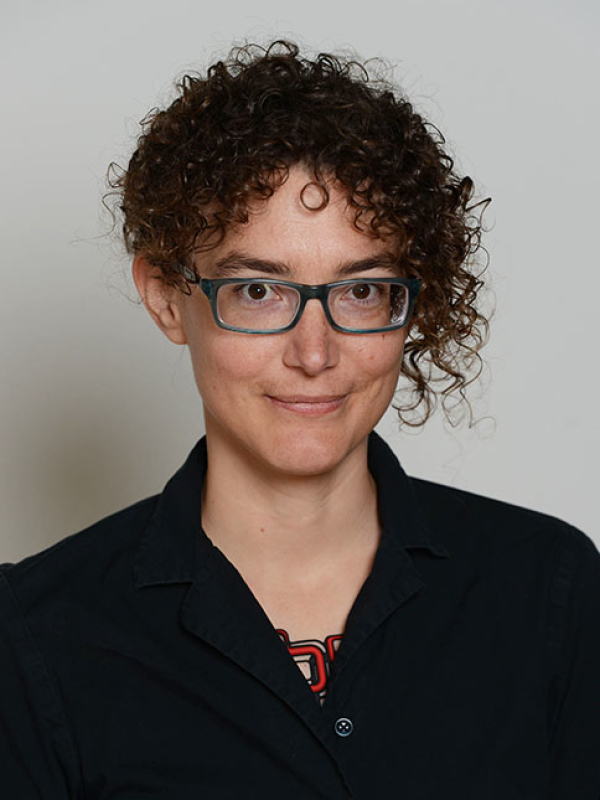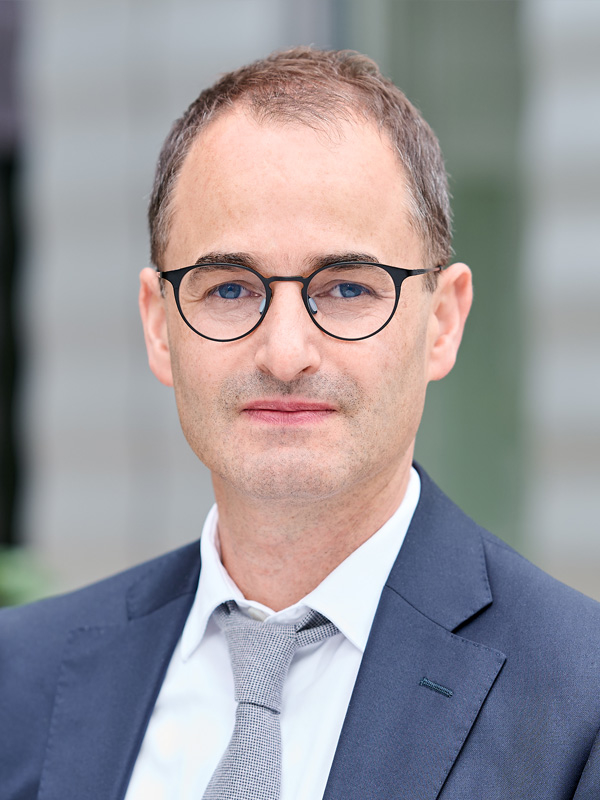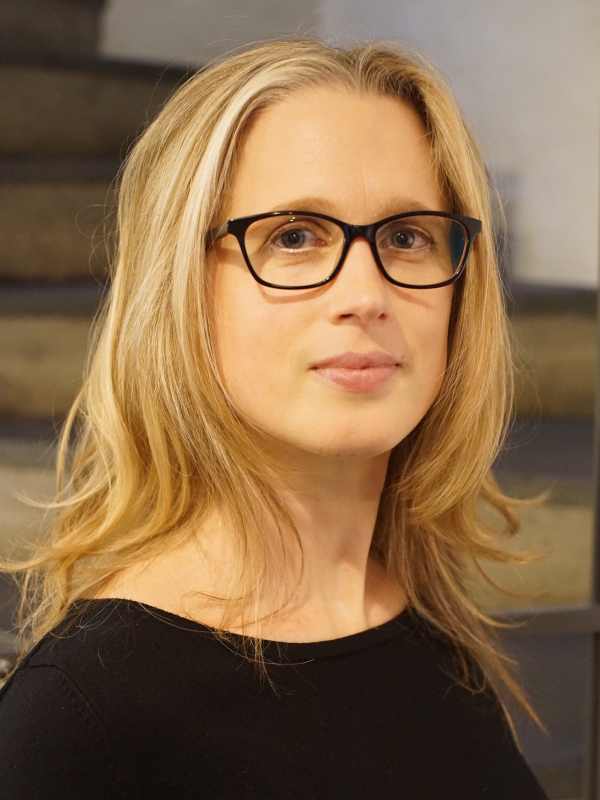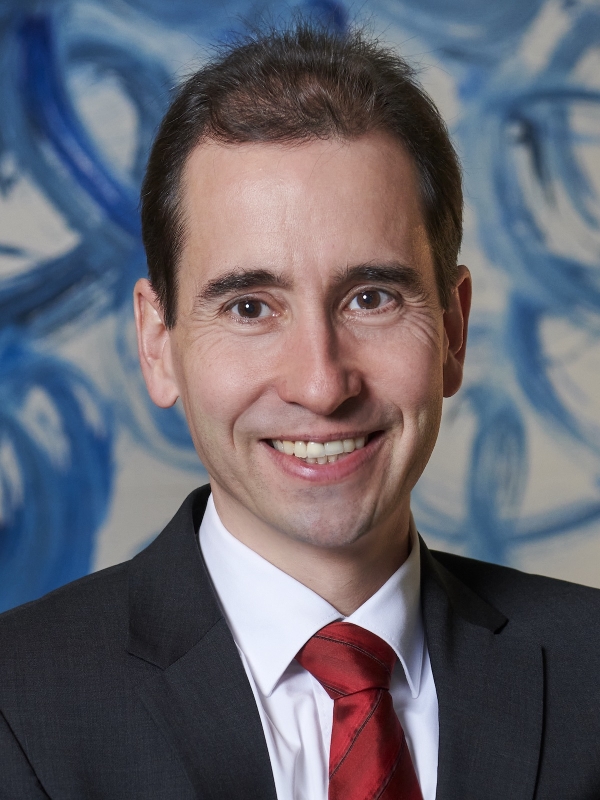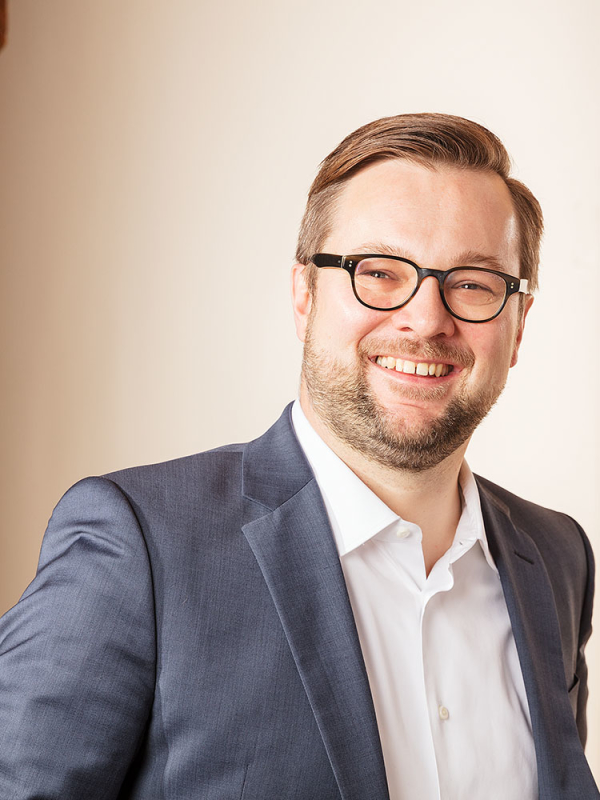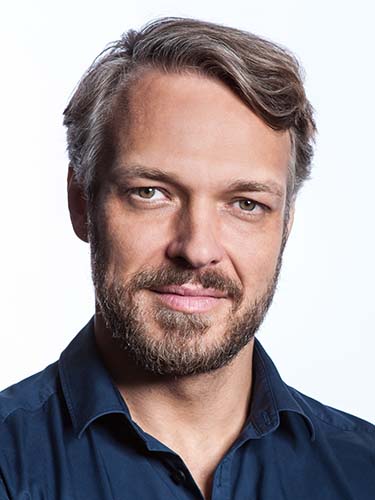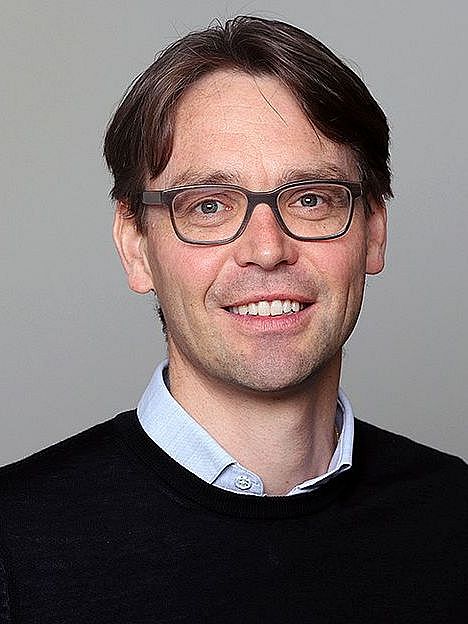Prof. Sonja Ammann - Faculty of Theology
Sonja Ammann has been Professor of Old Testament Studies at the University of Basel since 2017. She focuses on the literary history of the Hebrew and Greek Old Testament in an ancient context. In her research, she combines classical historical-critical exegesis with approaches from the cultural and social sciences. In addition to collaborating with other scholars of antiquity, she is particularly inspired by research into pop-cultural phenomena such as fan fiction and horror. Sonja Ammann studied Protestant theology in Lausanne, Buenos Aires and Heidelberg. In 2014, she completed her PhD at the University of Göttingen with a thesis on polemics against other gods in the Old Testament. From 2012 to 2016, she was a research assistant at the Humboldt University of Berlin.
Prof. Bijan Fateh-Moghadam - Faculty of Law
Bijan Fateh-Moghadam has been Professor of Fundamentals of Law and Life Sciences Law at the Faculty of Law of the University of Basel since 2016. His research focuses on criminal law in the field of new technologies. This includes, in particular, the law of biomedicine (life sciences law) with its legal-philosophical, medical-ethical and sociological references. In the area of criminal technology law, he is interested in transformative technologies (digitalization and artificial intelligence) and scientific paradigms (Anthropocene). Another focus of his research is the role of criminal law in the integration of religious and ideological diversity in modern societies (neutrality as a legal principle).
Prof. Nicola Gess - Faculty of Humanities and Social Sciences
Nicola Gess is Professor of Modern German and General Literary Studies at the University of Basel. She received her PhD at Princeton University and at the HU Berlin with the work Violence of Music. Literatur and Music critique around 1800 (Gewalt der Musik. Literatur und Musikkritik um 1800, Rombach, 2011), habilitation at the FU Berlin with Primitive Thinking (Primitives Denken). Savages, Children and Madmen in literary modernism (Wilde, Kinder und Wahnsinnige in der literarischen Moderne) (Müller, Musil, Benn, Benjamin) (Fink, 2013). In Basel, she led a research project on the stage of baroque opera as part of the NCCR eikones and two Sinergia research groups on Poetics and Aesthetics of Amazement and The Power of Wonder. She is currently leading the SNSF research project Half Thruths. Truth, Fiction and Conspiracy in the "Post-Factual Age". Recent monographs: Amazement. A Poetik (Staunen. Eine Poetik) (Wallstein, 2019); Half Truth. On the Manipulation of Reality (Halbwahrheiten. Zur Manipultaion von Wirklichkeit, Matthes & Seitz: Fröhliche Wissenschaft, 2021); Primitive Thinking. Figuring Alterity in German Modernity (De Gruyter: Paradigms, 2022).
Prof. Rainer Greifeneder - Faculty of Psychology
Rainer Greifeneder is Professor for Social Psychology at the University of Basel and investigates how individuals make sense of the social world in which they live--and how this perception influences human thought, feeling, and action. His research interests include, among others, social exclusion and ostracism, the influence of emotions on decisions, and lies and truth, including disinformation such as fake news. During his academic career, Rainer Greifeneder has conducted research at the University of Mannheim, the Radboud University Nijmegen, the University of Virginia, and the University of Southern California.
Prof. Alexander Honold - Faculty of Humanities and Social Sciences
Alexander Honold has been Professor of Modern German Literature at the German Department of the University of Basel since 2004. He took over the management of the Forum Basiliense from its founding director Oliver Nachtwey in May 2024. Alexander Honold completed his doctorate at the Freie Universität Berlin on Robert Musil's novel The Man Without Qualities and his habilitation at Humboldt University on astronomy in the work of Friedrich Hölderlin. Honold has held numerous fellowships, guest lectureships and research residencies, in Santa Barbara, Stanford, Vienna, Hamburg, Bamberg and Munich, among others. In 2021, he received the Carl Friedrich von Siemens Research Award from the Alexander von Humboldt Society. His areas of work include narrative research, intercultural literary studies, nature writing, letter corpora and network formation as well as literature and music. His current project is a history of German post-war literature.
Prof. Oliver Nachtwey - Faculty of Humanities and Social Sciences
Oliver Nachtwey was elected Director of the Forum Basiliense in 2022. As the first director, he set up and officially inaugurated the Forum in 2023. In 2017, he took up his Professorship in Sociology at the University of Basel. Oliver Nachtwey graduated in economics at the University of Hamburg and received his doctorate in political sociology from the University of Göttingen in 2008. He worked as a researcher at the universities of Jena, Trier and Darmstadt. He was a fellow at the Hamburg Institute for Social Research, the Kolleg Postwachstum in Jena and the Institute for Social Research Frankfurt.
Professor Nachtwey’s research interests are processes of social modernisation and individualisation as well as the transformation of work. His research and work also explore the development of social conflicts, political representation, protests and social movements. In his more recent work, he focuses on the social effects of digitalisation, in particular.
Prof. Alex Schier - Biozentrum
Alexander F. Schier is Professor of Cell Biology and the Director of the Biozentrum University of Basel.
Schier received a B.A. in cell biology in 1988 from the Biozentrum of the University of Basel, Switzerland, followed by a PhD in cell biology in 1992 under Walter J. Gehring, also from the University of Basel, Switzerland. He conducted his postdoctoral research in Wolfgang Driever's lab at the Massachusetts General Hospital and Harvard University in Boston, US. In 1996, Schier was recruited as assistant professor in the Developmental Genetics Program to the Skirball Institute and Department of Cell Biology, NYU School of Medicine.
From 2005 to 2019, he was a professor at the Department of Molecular and Cellular Biology, Harvard University, Faculty of Arts and Sciences. In 2013 he became the Leo Erikson Life Sciences Professor. He chaired the Department of Molecular and Cellular Biology from 2014 to 2017. Since 2017 Schier is a site director of the Allen Discovery Center for Cell Lineage Tracing. In 2018, Schier became the Director of the Biozentrum of the University of Basel as well as Professor of Cell Biology.
Prof. Philipp Sterzer - Faculty of Medicine
Philipp Sterzer studied medicine at the Ludwig Maximilian University of Munich and Harvard Medical School in Boston. After completing his doctorate at the Max Planck Institute of Psychiatry in Munich, he first trained as a neurologist at the Goethe University in Frankfurt am Main where he also began his scientific work on visual perception and consciousness, which he continued as a postdoctoral researcher at University College London. He subsequently moved to the Charité - Universitätsmedizin Berlin. In addition to his clinical training as a psychiatrist and psychotherapist, he set up his own research group and was appointed Professor of Psychiatry and Computational Neuroscience at Charité in 2011. Since 2022, he is Professor of Translational Psychiatry at the University of Basel and Chief Physician at the University Psychiatric Clinics Basel. His research focuses on the experimental investigation of the neuronal basis of psychotic disorders.
Prof. Alois Stutzer - Faculty of Business and Economics
Prof. Dr. Alois Stutzer is Professor of Political Economy. He studies the effects of political institutions on the behavior and well-being of various political actors. He is also particularly interested in questions from the fields of public economics, law and economics and psychology and economics. His current research interests include the institutional determinants of political selection, the interplay of media attention and the influence of interest groups on politics as well as emotional polarization. He is also currently Dean of the Faculty of Economics.

